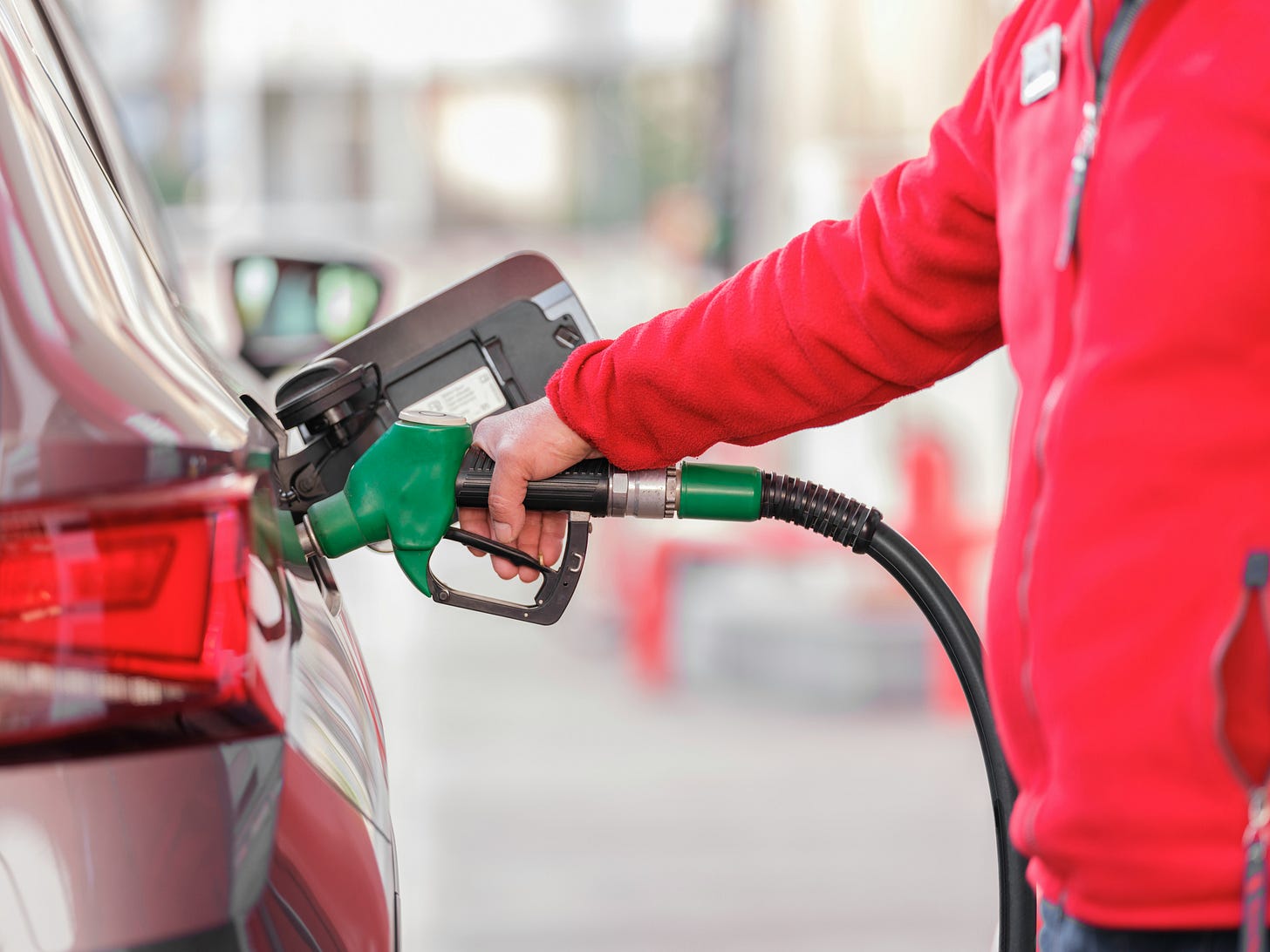Fuel prices see largest increase since 2022
While the rise in global oil prices is cited as a primary cause of the price hike, the National Association of Fuel Retailers suggested that a reduction in taxes could help mitigate the increases.

What?
Fuel prices in Portugal surged significantly this Monday, marking the largest increase since 2022.
Diesel and regular gasoline prices experienced sharp rises, with simple diesel showing the highest increase of 4.7 cents per liter and simple gasoline increasing by 2.6 cents per liter.
The price adjustments are based on data published by the Directorate-General for Energy and Geology (DGEG) from Friday, January 17.
These figures account for discounts offered by fuel stations and the government's active measures to manage fuel costs. However, the listed prices represent average indicative values and may not match the exact prices seen at the pumps.
Leading fuel retailers have also implemented price hikes.
BP and Repsol raised simple diesel prices by 5 cents per liter and simple gasoline (95) by 3 cents per liter. Galp followed suit with a 5-cent increase for diesel but a slightly smaller 2.5-cent rise for gasoline.
Government Measures in Effect
The government’s extraordinary fuel support measures remain in place for 2025, with some updates.
Since January 1, the ISP (Tax on Petroleum Products and Energy) increased by 3 cents, now at €0.48126 per liter for gasoline and €0.33721 for diesel. Meanwhile, the carbon tax decreased to €67.395 per ton, maintaining the overall tax burden at levels similar to late 2024.
With these adjustments, the average price of simple diesel now stands at €1.691 per liter, while simple gasoline (95) averages €1.776 per liter.
Prime Minister’s reaction
On the sidelines of an event on Monday, PM Montenegro commented on the issue, saying that “we are not in a scenario of constant escalation” in fuel prices.
“Today we have seen a significant increase, mainly due to the increase in the price of oil and the devaluation of the euro against the dollar. Fuel prices are updated weekly, they have fluctuated, and they have gone up and down over these last 10 months. Today we can say that, given the day we take on the responsibility of governing the country, gasoline is a little below the price it was in the first week of April and diesel is a little above the price it had in the first week of April. This means that the market, with the factors that contribute to price formation, has been moving at an average value and there is therefore no reason for alarm”, explained Luís Montenegro.
For Montenegro, we cannot “compare this with an escalation and inflation of prices, similar to what happened two or three years ago”.
He added: “As long as this mechanism works in such a way that there are decreases and few increases, although this happens from time to time, we will maintain our policy on fuels. If we reach, at some point, a constant and permanent increase in the price that jeopardises this balance, the Government will take measures to reduce the fiscal impact on price formation so as not to create excessive fluctuation.”
Reactions
Socialist leader, Pedro Nuno Santos, accused PM Luís Montenegro of misleading the public: “The Prime Minister claimed that this State Budget [OE] was the first in history without tax increases. But as soon as January 1 arrived, no one noticed. They’ll feel it on Monday when they go to refuel.”
“It was on January 1 that the decree increasing the tax on petroleum products was published. It didn’t even take six days for that statement to become one of the lies defining this government and the current Prime Minister,” said Pedro Nuno Santos during an event in Ponte da Barca, Viana do Castelo.
In response, the Parliamentary leader of the Social Democratic Party (PSD), Hugo Soares, dismissed the accusations, calling them an example of “political dishonesty.”
“Only outright political dishonesty could explain the Secretary-General of the Socialist Party making such claims. There is chaos within the PS. Fuel prices are rising because of the euro's depreciation and the increase in global oil prices, which is happening in every country. In politics, not everything goes,” Soares stated.
The criticism extended beyond the left. André Ventura, leader of Chega, took to the social media platform X to accuse the government of hypocrisy.
While the rise in global oil prices is cited as a primary cause of the fuel price hike, the National Association of Fuel Retailers suggested that a reduction in taxes could help mitigate the increases.
Where to get the cheapest fuel?
To help consumers navigate fuel costs, the Online Fuel Prices Portal provides up-to-date information (in portuguese, but not too difficult to navigate even if you can’t read) on fuel prices across different stations, along with details on location, operating hours, and available services.
This platform aims to enhance consumer choice and promote competition in the fuel market.
As prices fluctuate, this tool offers a reliable way to track daily averages and find the most affordable options for refueling.



